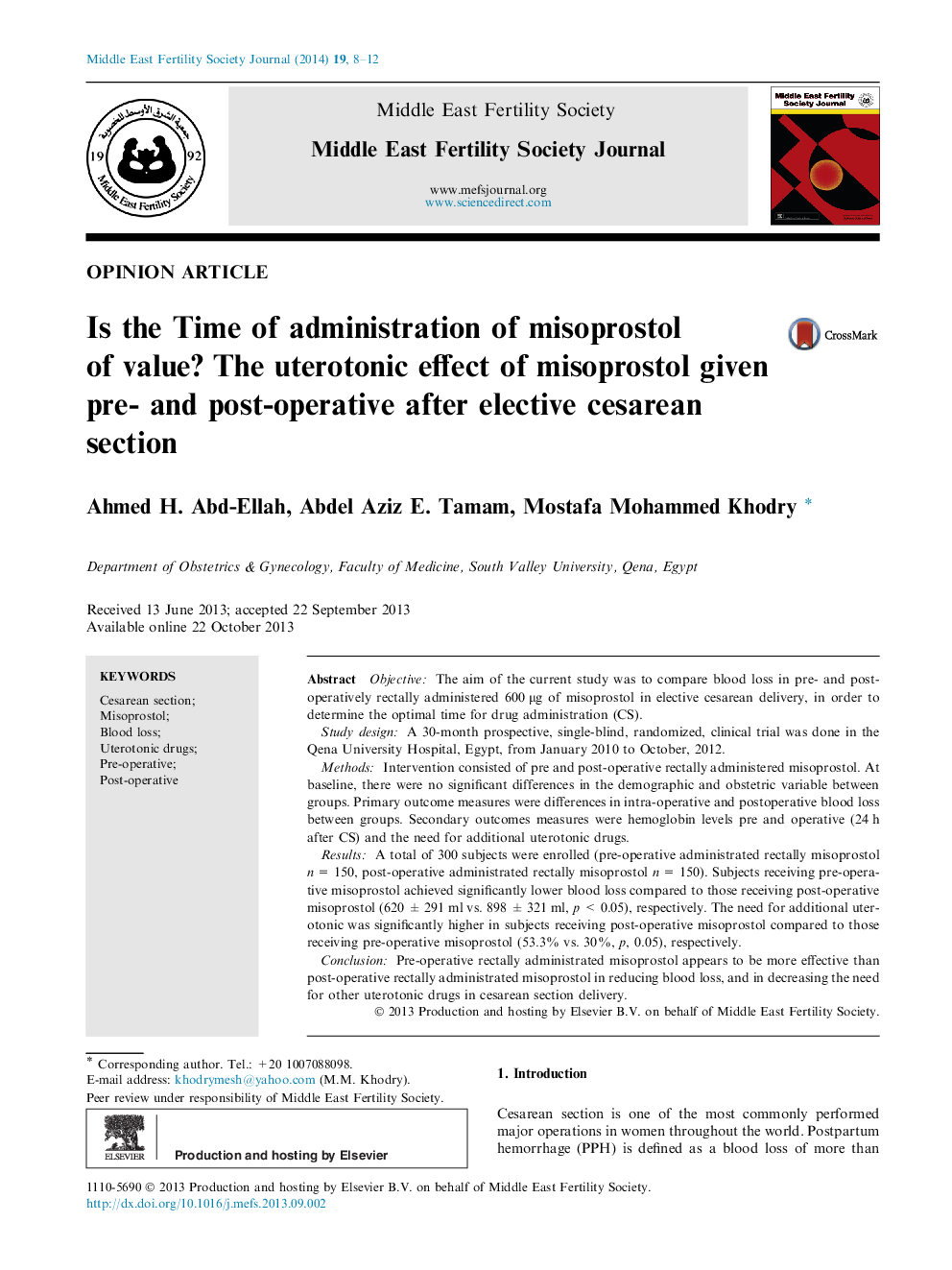| Article ID | Journal | Published Year | Pages | File Type |
|---|---|---|---|---|
| 3966153 | Middle East Fertility Society Journal | 2014 | 5 Pages |
ObjectiveThe aim of the current study was to compare blood loss in pre- and post-operatively rectally administered 600 μg of misoprostol in elective cesarean delivery, in order to determine the optimal time for drug administration (CS).Study designA 30-month prospective, single-blind, randomized, clinical trial was done in the Qena University Hospital, Egypt, from January 2010 to October, 2012.MethodsIntervention consisted of pre and post-operative rectally administered misoprostol. At baseline, there were no significant differences in the demographic and obstetric variable between groups. Primary outcome measures were differences in intra-operative and postoperative blood loss between groups. Secondary outcomes measures were hemoglobin levels pre and operative (24 h after CS) and the need for additional uterotonic drugs.ResultsA total of 300 subjects were enrolled (pre-operative administrated rectally misoprostol n = 150, post-operative administrated rectally misoprostol n = 150). Subjects receiving pre-operative misoprostol achieved significantly lower blood loss compared to those receiving post-operative misoprostol (620 ± 291 ml vs. 898 ± 321 ml, p < 0.05), respectively. The need for additional uterotonic was significantly higher in subjects receiving post-operative misoprostol compared to those receiving pre-operative misoprostol (53.3% vs. 30%, p, 0.05), respectively.ConclusionPre-operative rectally administrated misoprostol appears to be more effective than post-operative rectally administrated misoprostol in reducing blood loss, and in decreasing the need for other uterotonic drugs in cesarean section delivery.
